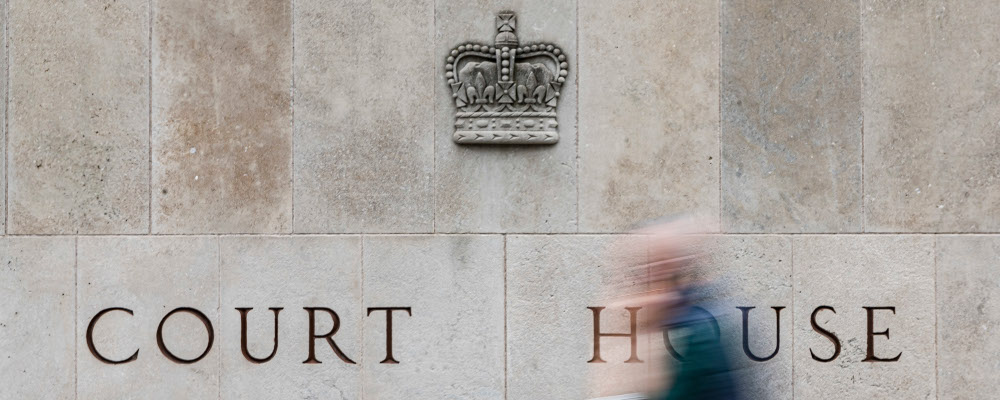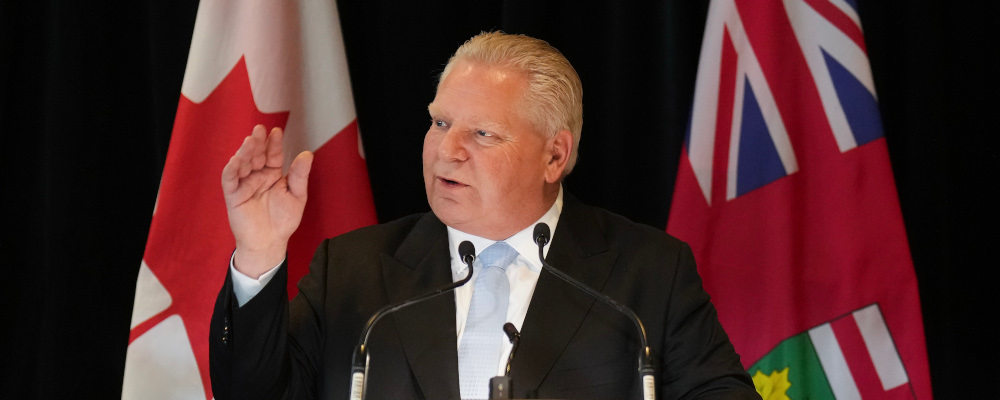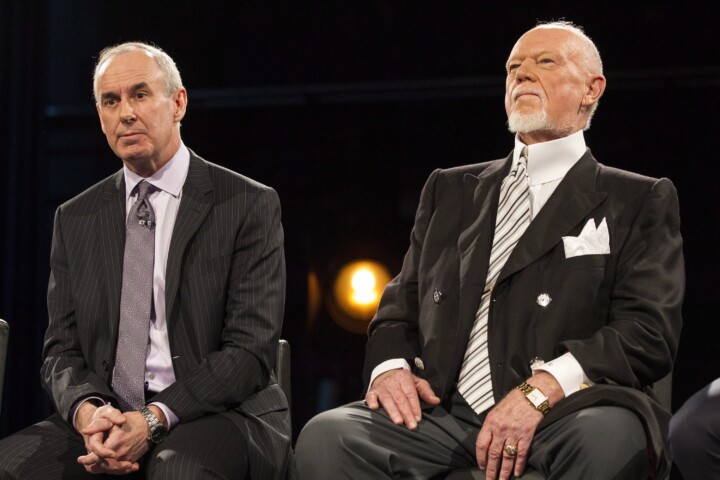Premier Doug Ford has been criticized by members of the legal community for adding two former political staffers to the committee that helps select Ontario judges and justices of the peace. Ford defended the move, saying he wanted “tough” and “like-minded” individuals in those judicial offices considering the rise of violent crime in the province. In particular, Ford’s claim that he was not going to appoint “some NDP or some Liberal” to serve on the committee drew the most media ire. Ford’s political opponents and members of the legal community criticized his government for politicalizing the courts, undermining meritocratic standards, and threatening the independence of the judiciary in a fashion more associated with American judicial politics.
The reaction to Ford’s comments was reminiscent of past controversies regarding political involvement in judicial selection. The media coverage of this story struck me as part of a familiar pattern: conservative governments are criticized, especially by members of professional legal associations, for trying to appoint judges who share their perspectives, particularly in the context of criminal justice matters. My research on the Harper government showed similar media trends to those involving Ford over the last few days.
In the 2006 election, the Harper government campaigned to do more to address violent crime in Canada. Part of the government’s approach was to find ways to appoint judges who would impose stiffer sentences on those convicted of serious crimes and who would be more deferential to Parliament in driving policy decisions around criminal justice matters. The Conservative government made changes to the process for selecting superior court judges (apart from the Supreme Court of Canada) by appointing a representative of law enforcement to the committee to vet judges, having candidates ranked on a binary “recommend” or “unable to recommend” scale rather than as highly qualified, qualified, or not qualified, and shifting the balance on the appointment committee in favour of representatives selected by the government, instead of the members of the legal community.

When these changes were announced, members of the legal community (most prominently the Canadian Judicial Council) denounced the changes for not consulting the legal profession, diluting the quality of judicial candidates, and undermining judicial independence. During the Harper era, various legal scholars criticized the government’s changes to the selection process as ideologically motivated and lamented that the government would curb the influence of members of the legal community from having an outsized role in recommending names for judicial appointments.
The reaction to Ford’s comments last week, along with his government’s 2021 reforms that enhanced the attorney general’s discretion over to make selections by increasing the shortlist from two to six candidates and a greater discretion over which laypersons would serve on the advisory committee, faced similar criticisms as Harper faced early in his mandate. Critics have once again trotted out the argument that Ford’s changes are ideological, partisan, and will affect the quality of the judges selected.
Ford’s (and Harper’s) critics miss several salient points when considering the politics of judicial selection. First, courts are political institutions. It should be stressed that politics and partisanship are not the same thing. The courts are political in the sense that, like other political institutions, they make decisions that reflect the community’s values and differing views of justice. As Emmett Macfarlane has written, “judicial decision-making, while necessarily distinct and independent from explicit politics, carries political weight”; he argues that judicial appointment processes should be transparent “not in a way that attempts to falsely depoliticize it but in a way that makes us aware of the nuanced ways that politics matter.”
This is particularly salient given the controversy over Ford’s comments. Several outlets criticized a 2019 TVO interview where Attorney General Doug Downey articulated that as the minister responsible, the appointment process should allow him to select qualified individuals who share his government’s values, such as victim’s issues. Downey’s comments and Premier Ford’s desire for individuals to vet judicial appointees for shared perspectives are different from partisanship (despite Ford’s somewhat crass framing as not wanting Liberal or NDP supporters involved).
Second, given our system of ministerial responsibility, the process for appointments will always be subject to some form of indirect political and democratic control. Notably, critics of both the Harper and Ford governments’ changes explicitly articulated their concerns that the changes have diluted the influence that members of the legal establishment have over vetting who ought to be considered for appointment to judicial office. For instance, when the Harper government made its judicial appointment changes, University of Ottawa Law Dean Adam Dodek, criticized the changes to the committee structure, saying that the government “reduced the role of legal elites not in the name of democratic participation but for greater government control instead.”

Similarly, when the Ford government made some analogous reforms in 2021, John Struthers, president of the Criminal Lawyers Association characterized the changes as “a perversion and a corruption of the appointment process, that everyone in the system opposes.” In particular, Struthers was critical of the changes that allowed the attorney general to select lawyers to serve on the committee from various professional associations (namely the Law Society of Ontario, the Ontario Bar Association, and the Federation of Ontario Law Associations) rather than being able to select their own members. Struthers’ vice president at the CLA lamented that “rather than those organizations having independent choice over their representatives, it’s now subject to the AG’s approval.”
Even less restrained was, Douglas Judson, chair of the Federation of Ontario Law Associations, who said, “We would expect [Ford’s] commentary from a MAGA Republican, not the premier of Ontario.” The heated rhetoric used to characterize these changes reflects not just a disagreement over the institutional design of the committee structure but also a recognition of the loss of the legal profession’s control over a process that had gone unchallenged since the committee process was formalized in 1994.
The Trudeau Liberals’ 2015 platform explicitly stated that it would improve the government’s relationship with the judiciary, thus ending the contentious Harper era. The Trudeau government largely undid all the Harper government’s reforms to judicial selection and was lauded by some in the legal profession. In the ensuing years, the federal Liberals have been in hot water over evidence of patronage and cronyism. Reporting from 2019 revealed that the PMO was screening candidates for judicial appointment through the party’s funding database (“Liberalist”). A subsequent and even more thorough investigative study found that donations from judicial appointees flowed disproportionally to the Liberal Party. These controversies have not generated the same calls for reform from the legal associations as these scandals pertain more to graft than to an attempt to change how judges are selected. It is sufficient to say that choosing sympathetic judges is a bipartisan practice at this point.
Recommended for You

Falice Chin: A tale of two (Poilievre) ridings

Evan Menzies: Calgary at 150: Why is it so hard to celebrate our history?

‘We’re winning the battle of ideas’: Conservative MP Aaron Gunn on young men moving right, the fall of ‘wokeness,’ and the unraveling of Canadian identity

Laura David: Red pill, blue pill: Google has made its opening salvo in the AI-news war. What’s Canadian media’s next move?



